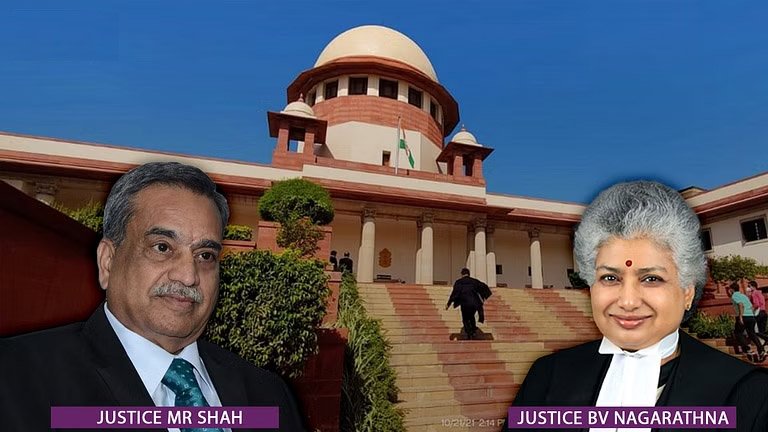Published on :
“We deprecate the practice of a State filing such cases before the Apex Court. Hence the appeal is dismissed with cost of ₹50,000 payable by the appellant to the respondent within a period of four weeks from today,” the Court ordered.
As per the facts of the case, the husband of the respondent was working as a lecturer since July 2, 2001. He died on August 11, 2009 while in service. The respondent then applied for payment of gratuity due to her deceased husband, but the same was rejected on the ground that the husband of the respondent, while in service, had not opted for retirement at the age of 60 years.
Challenging this, the respondent-wife moved before the High Court which allowed the plea of the wife and had directed the State to compute the amount payable to the respondent’s husband towards gratuity, ignoring the fact that the husband of the respondent had not opted for retirement at the age of 60 years.
Aggrieved, the State moved the Supreme Court.
The State argued that the High Court did not properly appreciate the fact that the deceased employee failed to exercise the option of retirement and, therefore, the benefit of death-cum-retirement gratuity cannot be sanctioned to the respondent-wife of the deceased employee.
It was also contended that as per the prevailing government orders, the exercise of option to retire at the age of 60 years for availing the benefit of death-cum-retirement gratuity was mandatory and, therefore, in the absence of any option exercised by the deceased employee, the High Court erred in directing the State to grant the benefit of death-cum-retirement gratuity to the respondent.
On the other hand, the respondent highlighted that as per the government order dated September 16, 2009, the deceased husband of the respondent was entitled to exercise the option to retire at the age of 60 years which was available up to July 1, 2010. However, before he could exercise the option, he died on August 11, 2009.
Therefore, it was submitted that in view of the peculiar facts and circumstances, where the deceased employee died before the due date of exercising option to retire, his wife would be entitled to the benefit of death-cum-retirement gratuity and the High Court did not commit any error in ordering the same.
The Supreme Court took note of the fact that as per the government order dated September 16, 2009, the deceased had time till July 1, 2010, to exercise the option of retire. However, he died even prior to the government order. Considering the fact, the Court was of the view that the respondent was entitled to get the gratuity amount of the deceased.
“It is required to be noted that the date of birth of the deceased was 1.7.1951. He was appointed as a Lecturer on 2.7.2001. He would have completed 60 years of his age on 30.06.2011. As per Government Order dated 16.09.2009, he would have exercised his option to retire at the age of 60 years on or before 1.7.2010, However, before he could exercise the option, unfortunately he died. In fact, he had died even prior to the Government order. He had died on 11.08.2009 whereas the Government order is dated 16.9.2009. Therefore, there was no chance for him to exercise any option at all. There is hence no merit in this appeal,” the Court observed.
The apex court, therefore, ruled that the High Court rightly observed that the respondent-wife would be entitled to the benefit of the Government Order dated September 16, 2009 and would be entitled to the benefit of death-cum-retirement gratuity being the heir of her deceased husband.
“It is required to be noted that it is not the case on behalf of the appellants that if the deceased employee would have exercised the option, even then he would not have been entitled to the benefit of death-cum-retirement gratuity under the scheme. The deathcum-retirement gratuity is the benevolent scheme and the same is extended to the respondent being heirs/dependent of the deceased employee by the learned Single Judge, confirmed by the Division Bench. In the facts and circumstances of the case, no interference of this Court is called for,” the Court said.
It, therefore, the dismissed the appeal of the State and also imposed ₹50,000 as costs on the State to be paid to the respondent.



